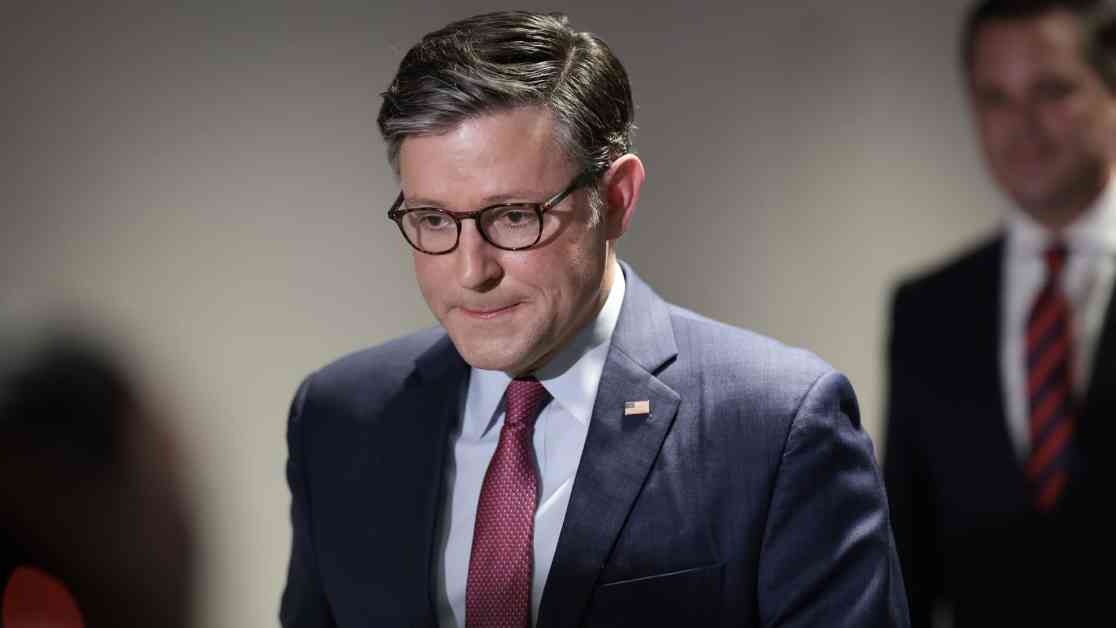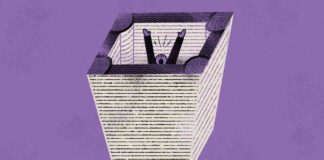House Speaker Johnson Makes Bold Move to Remove Trump Voting Restrictions in Government Funding Bill
U.S. Speaker of the House Mike Johnson (R) (R-LA) announced a significant development on Sunday regarding a new temporary government funding proposal. This proposal includes key amendments from the original bill he had put forward earlier in the month. The move signals a departure from former President Donald Trump’s wishes and demonstrates a willingness to make concessions to Democrats.
The revised bill, if passed, would fund the government through December 20, omitting any mention of the SAVE Act. The SAVE Act is a Trump-backed election security proposal that would require individuals to show proof of citizenship to register as voters. This exclusion is a clear indicator of Johnson’s determination to find common ground with Democrats while steering away from the more stringent voting restrictions proposed by Trump.
In a letter addressed to his colleagues, Johnson emphasized the minimalist approach of the new proposal, describing it as “very narrow” and “bare-bones.” He stated that the bill would only contain extensions that are deemed absolutely necessary to prevent a government shutdown. This strategic move aligns with the urgency of the situation, as Congressional Republicans and Democrats have a limited window of eight days to reach a consensus on government funding before a potential shutdown on October 1.
While acknowledging that the current solution may not be ideal for any party involved, Johnson underscored the importance of avoiding a government shutdown so close to a pivotal election. He referenced historical precedents and recent polling data to illustrate the potential negative consequences of such a scenario, labeling it as “political malpractice.” This sense of urgency underscores the critical nature of the decisions being made in the realm of government funding.
The new bill is expected to reach the House floor by Wednesday, following a swift timeline set by House Republican aides. Alongside the funding provisions, the proposal also includes an allocation of $231 million for the Secret Service. This allocation comes in response to mounting pressure on the agency for additional resources, particularly in light of a recent incident that appeared to be an assassination attempt against former President Trump.
Johnson’s decision to revise the bill and remove the SAVE Act represents a significant pivot from the initial version he had proposed. The original bill would have funded the government through March 2025, thereby setting funding levels for the incoming administration. It also included the contentious SAVE Act, which proved to be a sticking point for both Republican and Democratic lawmakers.
Trump had publicly voiced his support for the initial spending resolution, emphasizing the importance of election security assurances in the funding bill. However, the inclusion of the SAVE Act faced resistance within the House Republican caucus, with some members expressing concerns over the temporary nature of the funding and specific allocation details. With a narrow majority in the House, Johnson faced challenges in garnering sufficient support for the bill within his own party.
In light of the obstacles faced with the six-month funding bill coupled with the SAVE Act, Johnson opted for a new strategy. By introducing a three-month spending plan that excludes the controversial voting restrictions, Johnson seeks to bridge the gap between party lines and pave the way for bipartisan cooperation. This shift reflects a willingness to compromise and prioritize the continuity of government operations over partisan agendas.
The decision to abandon the SAVE Act and embrace a shorter-term funding proposal has garnered support from Democratic leaders, including President Joe Biden and Senate Majority Leader Chuck Schumer. Both Biden and Schumer had advocated for a clean funding bill without attached provisions, allowing for a fresh start in January with the new governing body. Schumer praised the changes made by Johnson, highlighting the potential for bipartisan collaboration in avoiding a government shutdown.
The shift in strategy by Johnson, while aimed at averting a shutdown and fostering bipartisan cooperation, may have broader implications for his leadership. His predecessor, former House Speaker Kevin McCarthy, faced repercussions for striking a deal with Democrats to prevent a shutdown in 2023. The delicate balance between party loyalty and pragmatic governance poses a challenge for Johnson as he navigates the complexities of leading a divided House.
As the deadline for government funding approaches, the fate of the new proposal remains uncertain. The upcoming days will be crucial in determining whether Republicans and Democrats can find common ground and pass a funding bill that averts a government shutdown. Johnson’s bold move to remove Trump’s voting restrictions signals a willingness to prioritize governance over partisan divides, setting the stage for potential bipartisan collaboration in the weeks ahead.

















